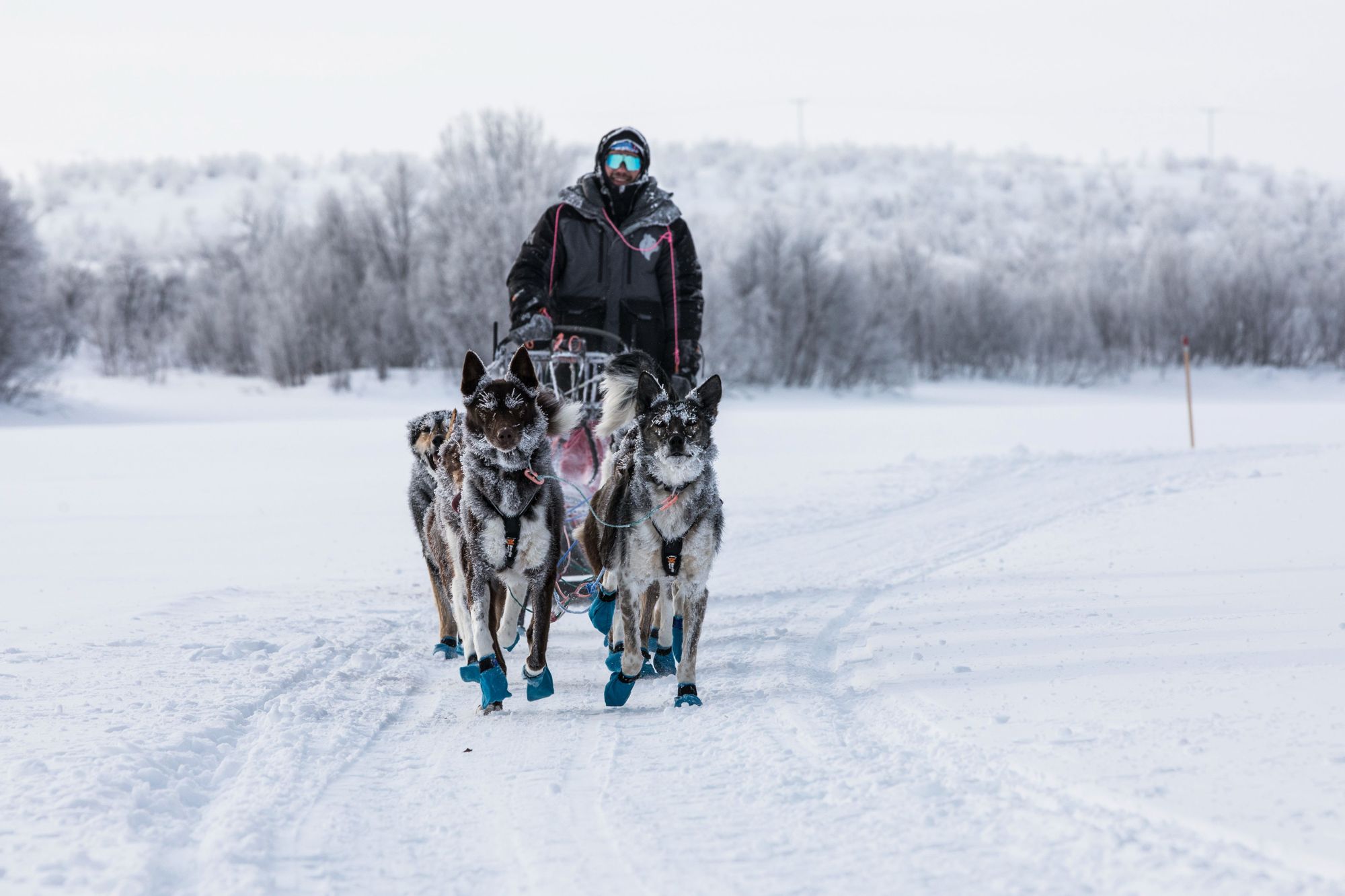MUSHER is a short film about Brage Jæger as he prepares for, then runs, the Finnmark Race, Europe's longest dog sled race. The film follows Brage in the days leading up to the race, as he trains his dogs in the snowbound landscape surrounding his hometown of Alta in Norway. MUSHER includes dramatic footage of the race, including the emotional moment when Brage crosses the finish line.
We spoke to Brage about the complexities of training his dog team to run a 600km race, and what motivated him to take on such a gruelling challenge.
Brage grew up in a dog sledding family. His parents moved to Alta to learn how to mush, and established a sledding business there. Jæger's father competed in the Finmark Race fifteen times, winning three times, and his mother was one of the first two women to compete. But it was only recently that he decided to follow in their footsteps.
“As I went into my twenties, I started getting interested in performance athletes. I've been doing sports my whole life - football, handball, cross country skiing - but I never went deep into anything, because I didn’t have the interest,” he says.
“Then I came home to help with the business, and in order to train new staff I had to get to know all the dogs, the trails and the equipment. I've always loved animals, we grew up with them. And during the process of learning about the business, these two interests - in tough projects and in the dogs - combined, and I decided to start training for a race.”
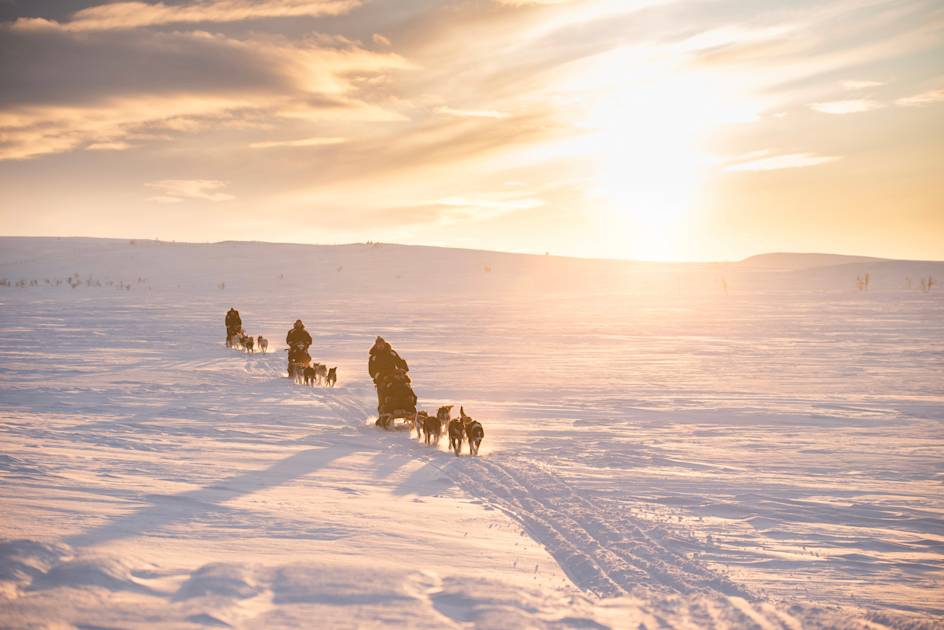
As the Finnmark Race was cancelled during covid, Brage ended up training with his dogs for two and a half years, and running over 10,000km with them.
“We train dogs from when they’re puppies, by going from A to B. At the very beginning, this would be just walking one kilometre and back home. Then we put them in a team and start building that distance. As they become fitter and more experienced, the distance between A and B gets stretched, and their confidence increases. It's a slow and steady build,” he says.
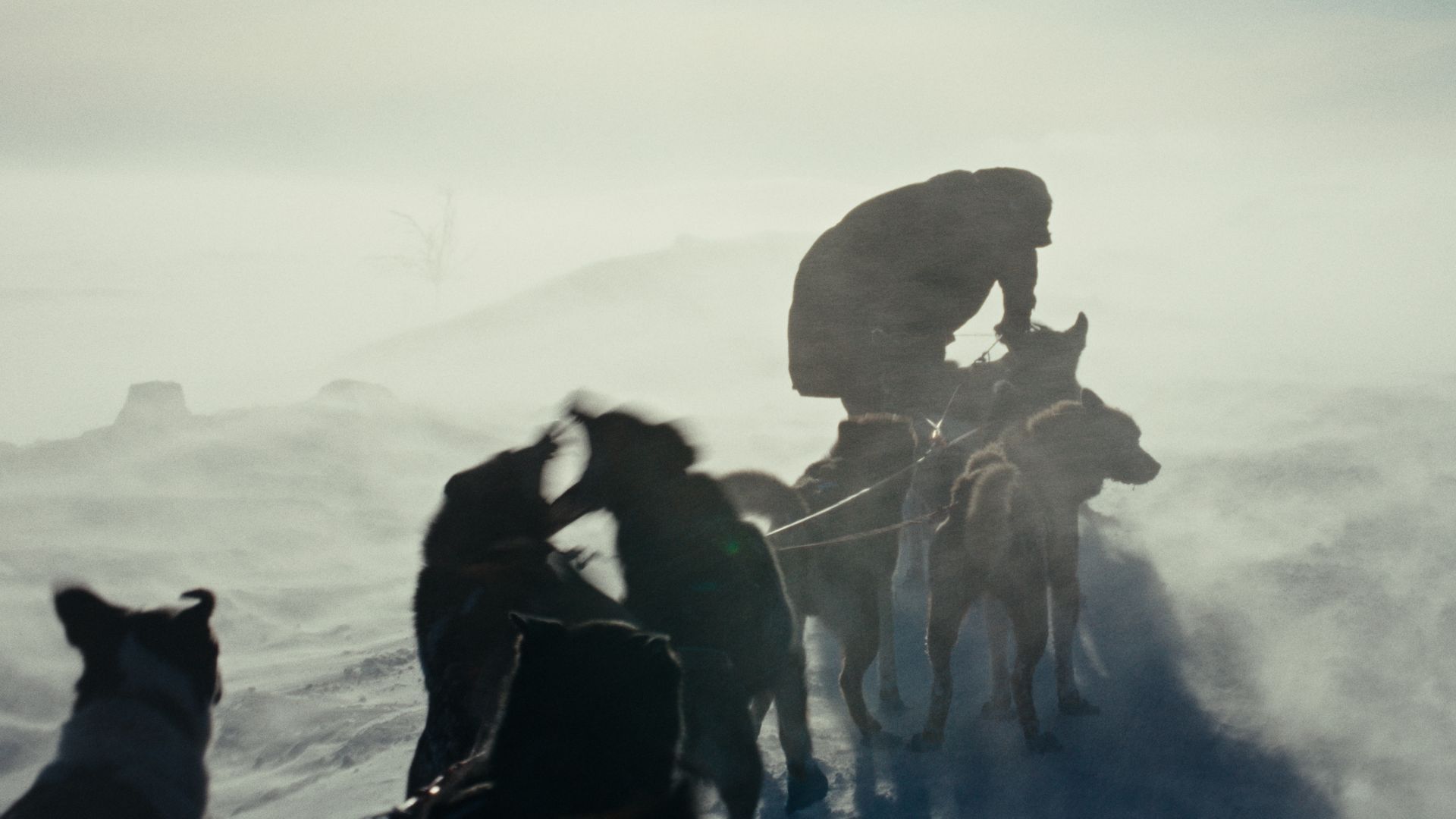
But training is about more than building distance. It’s also about creating a deep connection with your dogs, a process that Brage finds deeply compelling.
“Runners around the world train 360 days a year, but you could never do it with these dogs. You could do it physically, but you could never do it mentally. The dogs can’t say ‘we want to go to the olympics in four years’ - they're in the here and now, so you have to take the temperature of how they feel, and balance the training based on that.
The dogs can’t say ‘we want to go to the olympics in four years’ - they're in the here and now, so you have to take the temperature of how they feel.
“That's what I find super complex about it. You can't talk to the dogs but you can get to know them, and see when it's too much or too little. And it's completely different for each one - they're all unique in their build, their appetite and their motivation. So you have to run them together but you have to rest dogs individually,” Brage says.
Jæger trains with 17 dogs, aged between two and six. Only eight are required to run the race. He selects them based on their fitness and the way they work together. A lead dog needs to be able to take on the responsibility of leading the pack, and to persist even when the going gets tough.
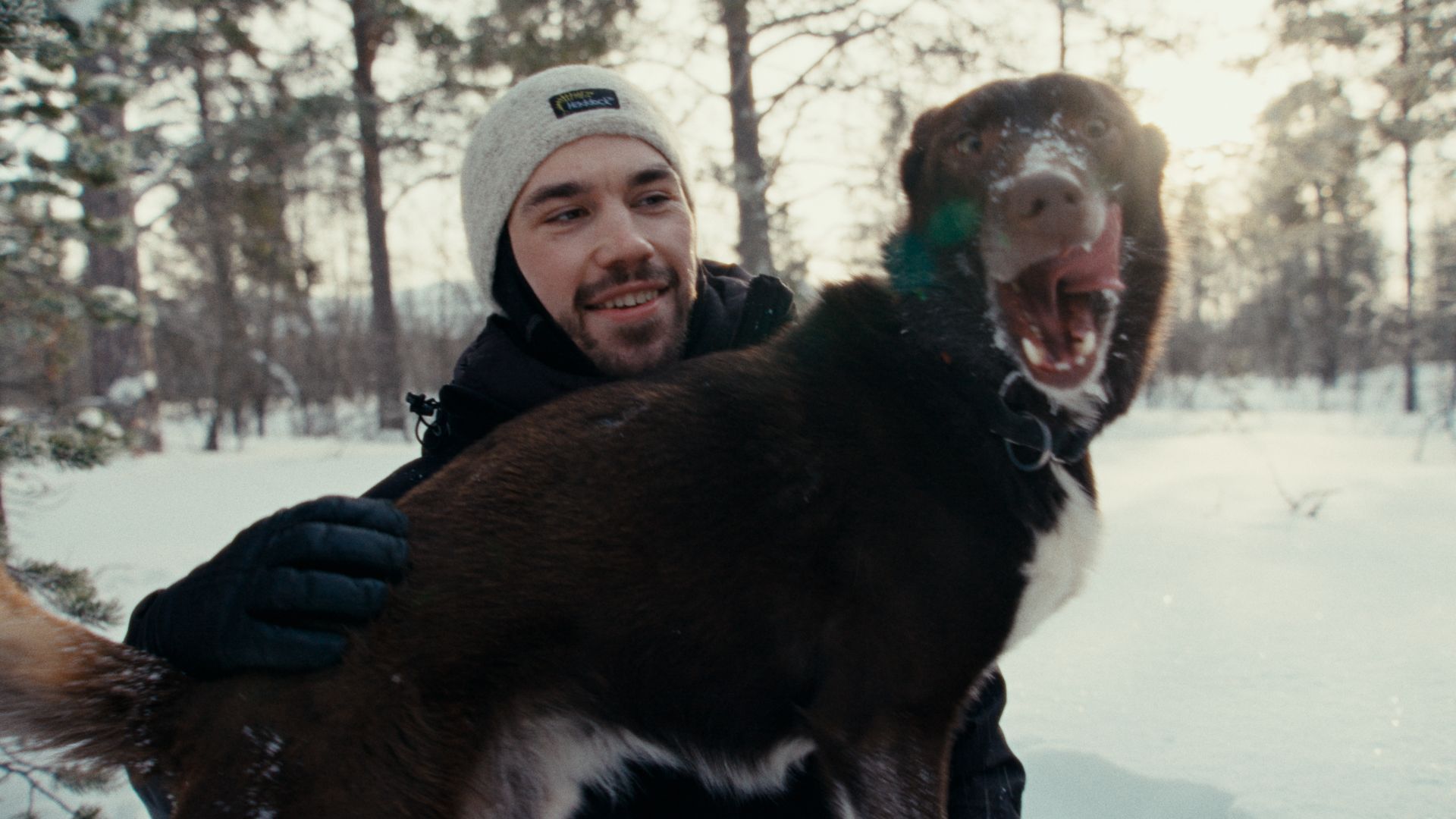
“I don't have that many lead dogs in my team, but I have many who have the skillset to become a lead dog. At the moment, they can take on responsibility when it's not so tough. I need to swap them with the older, more experienced dogs when I see they’ve had enough.
"If the two year olds are in charge and the stress gets too high, and you don't swap them, you can almost break dogs. You go backwards instead of forwards in their progress,” Brage explains.
You need to know the inside of the paw of every single dog that you train.
Training may be gruelling for the dogs, but it’s difficult for the musher, too. Braving the sub-zero temperatures, remaining motivated and driving the sled for hours requires mental and physical resilience. Caring for the dogs is also physically demanding. Making sure they are all wearing their booties is particularly gruelling. They need booties because otherwise the pocket inside their paws will fill with powder snow and rub against the skin, creating painful ‘long distance cracks’.
“I go through thousands of booties through a training season and that's a big part of why it's physically difficult,” Brage says. “Just being on your feet for twelve hours every day in the temperatures you're in takes a lot of energy. But socking the dogs - which is 17 booties times four - means you’re constantly bent over, like you're picking fruit or potatoes from the ground. You need to know the inside of the paw of every single dog that you train, to make sure they have no injuries. You have to cream the paws, you have to grease the paws, you have to wear booties.”
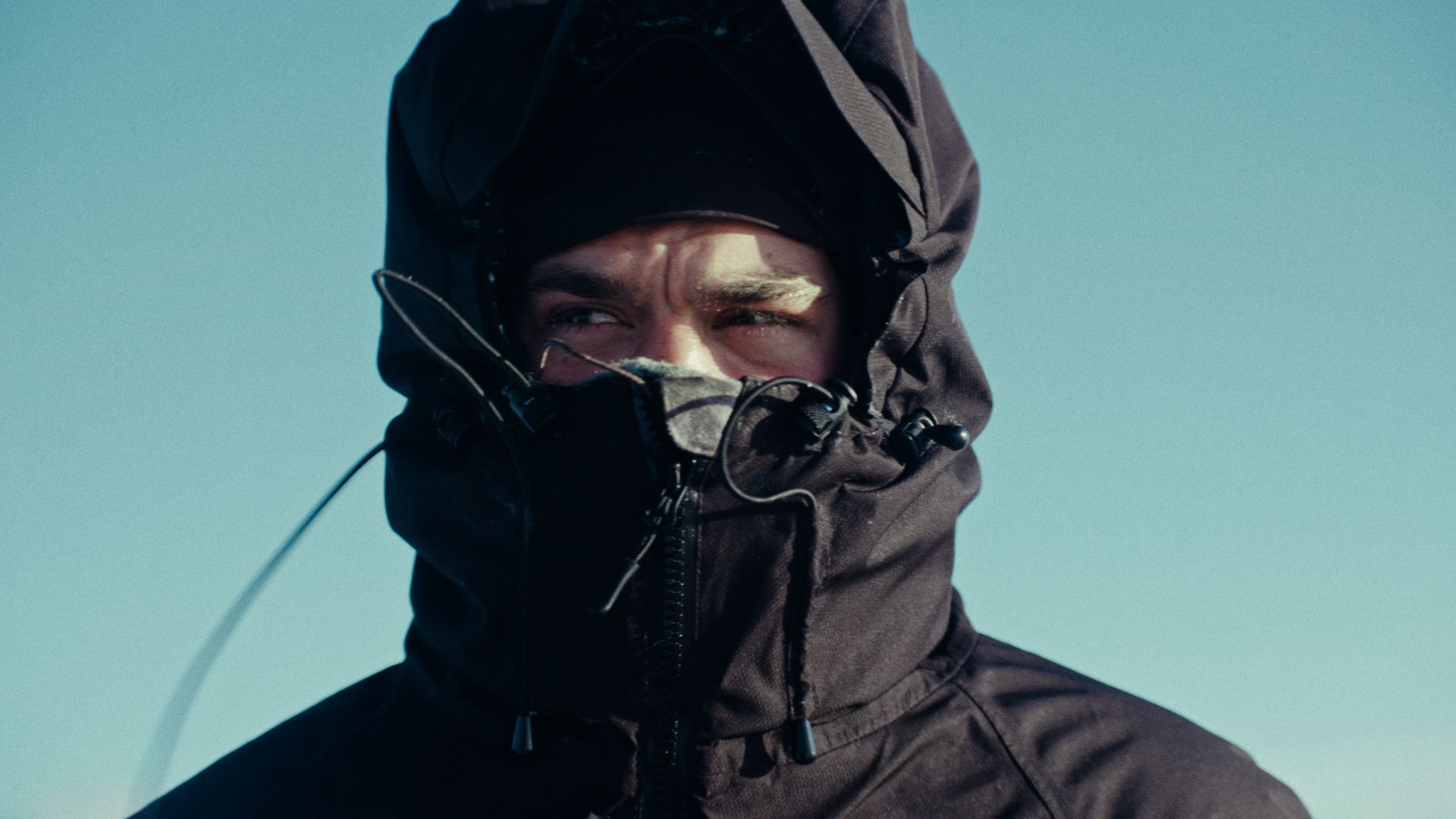
All this happens before the race has even started. And the race itself is even more gruelling. Alongside the physical difficulties, you’re also dealing with the emotional strain of competing, and of being in a situation where anything can go wrong.
“There are so many kilometres to go that there's an element of luck involved,” Brage says. “You can hit bad weather while the person in front of you doesn’t. Your dogs could get injured from stepping in a hole or fighting with another dog. There's a lot of different bacteria on the trail from all the dogs - they can snap up the snow and get one they react badly to, and then suddenly you have a sick team. There are so many variables that can make a great team collapse, and it's not the lack of training, it's just bad luck.”
Every single thought goes to the next step, next run, next feeding. And you're always balancing it. It's the most motivating thing I've done in my whole life.
Luckily, Brage had no such bad luck while running the Finnmark Race - in fact, he exceeded his own expectations by coming in fifth place out of 70 teams. In MUSHER, he describes the intensities of emotion he experienced throughout. At one point in the race, while sledding down a frozen river in the middle of the night, he cried for around two hours straight - not from sadness, he explains, but out of gratitude for the experience.
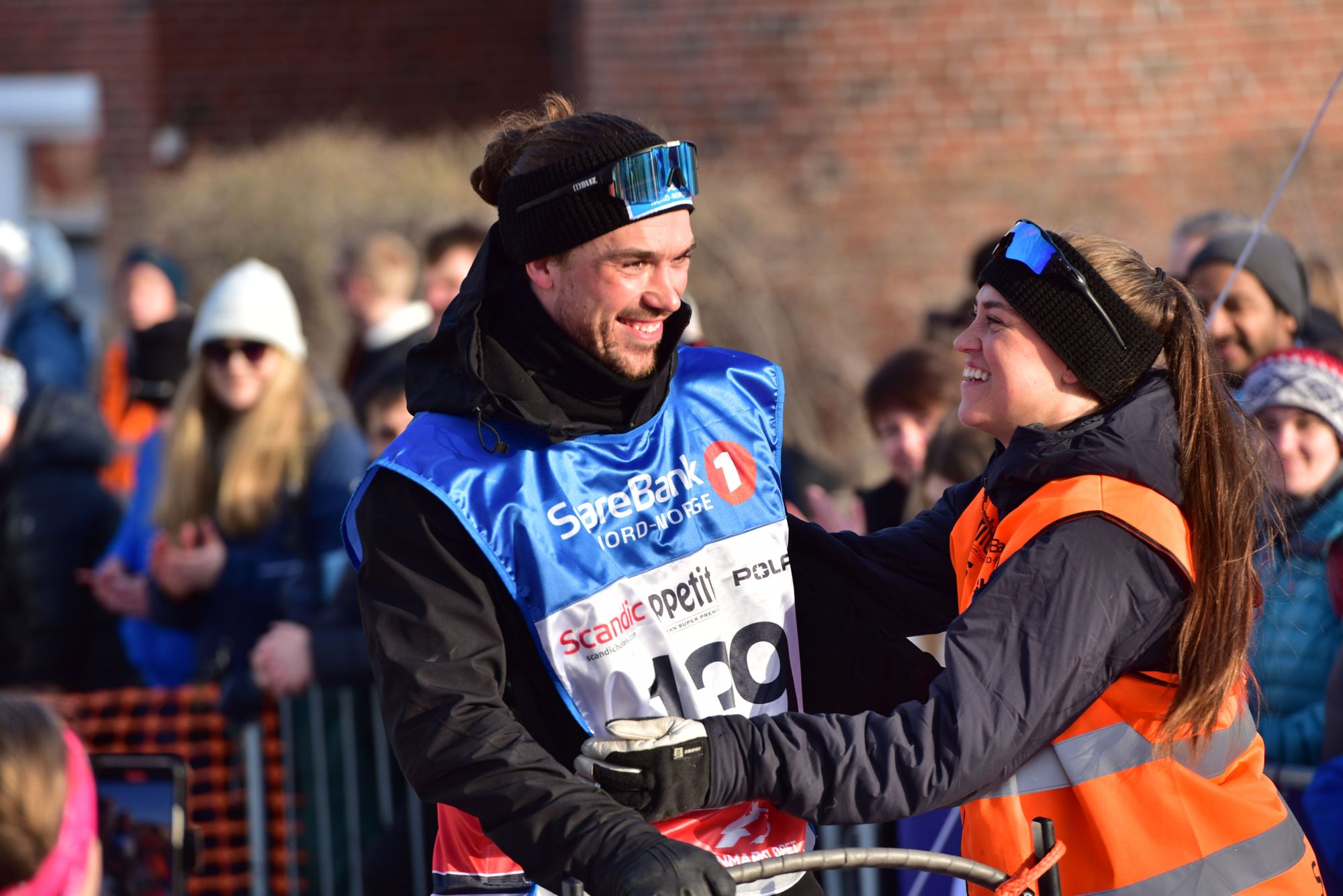
“It's a huge project because it stretches over years, whereas the race only took me two days and 17 hours. I only slept for three and a half hours in that time period, so emotions can be stronger when you're in it.
“You're in a bubble from the starting line to the finish line; a magical bubble of progress. Every single thought goes to the next step, next run, next feeding. And you're always balancing it. It's the most motivating thing I've done in my whole life,” he says.

Completing the race has improved his confidence, and increased his faith in the training programme he has developed. Even the dogs are more motivated and engaged this season.
“Now I know what we need to do, and how I want to do it. And it doesn't have to be right, but if I feel it's right it's going to bring natural confidence, which they'll feed off, and we'll have that natural momentum,” he says. “At the moment we're on track - we've done 100% of the training sessions. I feel like we're on the path to at least be competing for first place.”
Feeling inspired? Check out our Husky Sled and Northern Lights Expedition, created in the Arctic circle in co-operation which Brage!


